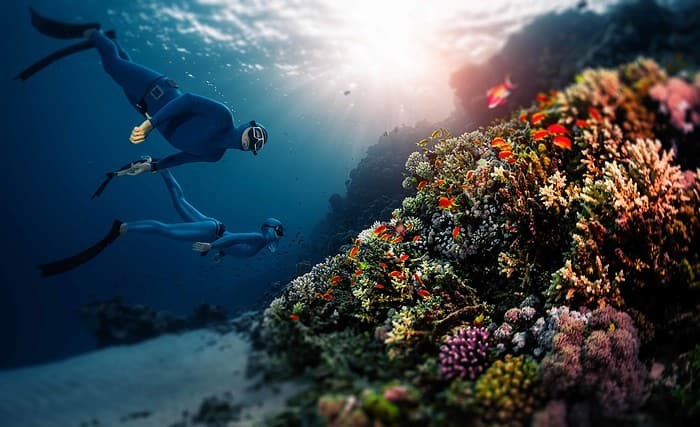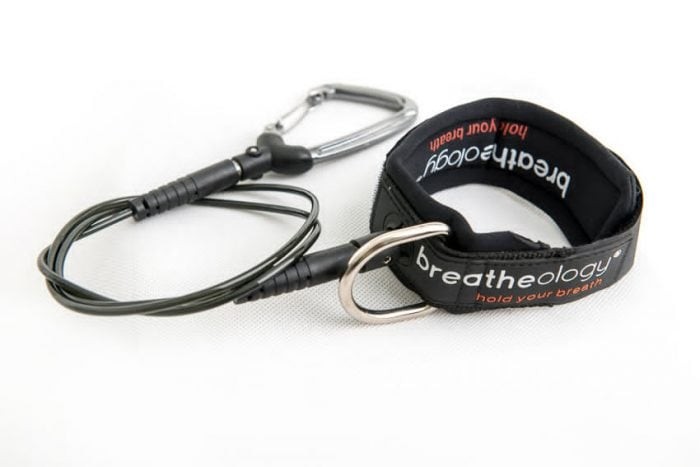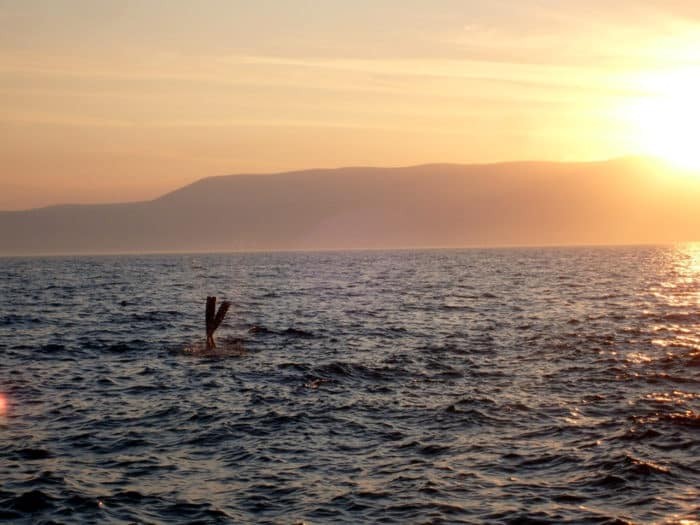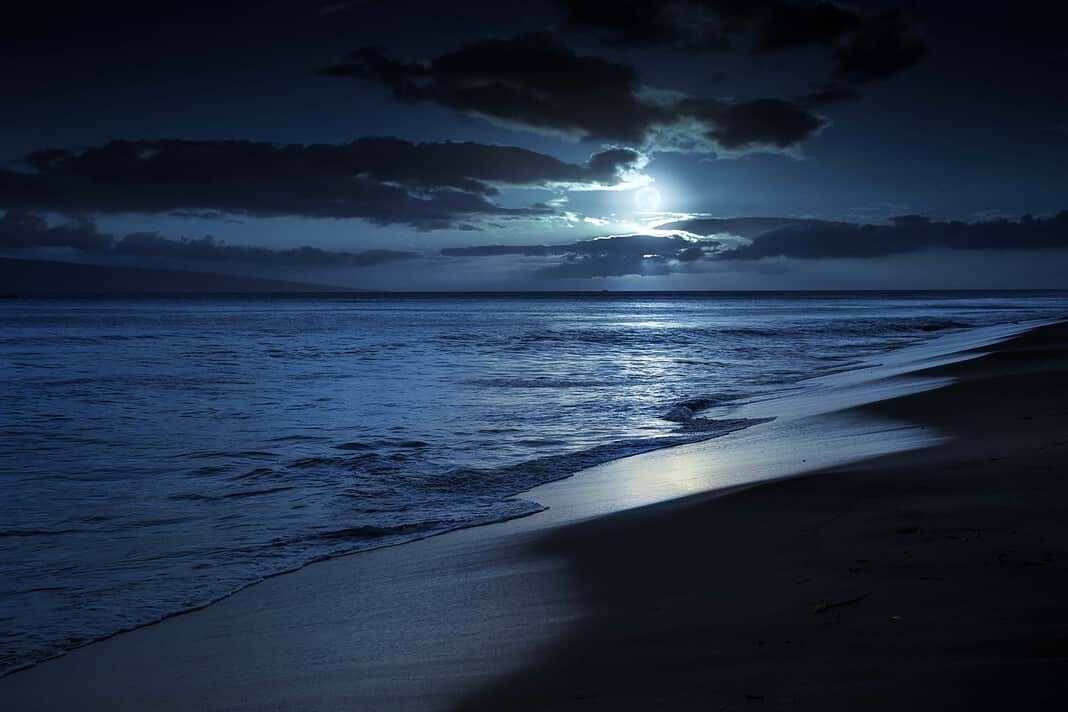The underwater world is filled with wondrous creatures, corals, and formations that some people only dream of seeing themselves. These wonders do not lose their magnificence when the sun goes down, though; it is a completely different world at night. The ocean becomes full of sounds, fish are more lively, and bioluminescence can turn your underwater experience into an adult Disney World. Only experienced freedivers who are completely comfortable in the water should attempt freediving at night, as it can be extremely disconcerting diving in such an unfamiliar atmosphere.
Here are ten tips to make your night freedives as safe as possible.
Buddy System

The buddy system should always be in place when you freedive, as solo freediving can be extremely dangerous. This is especially true for night diving; you need to have eyes on your buddy at all times, especially in the dark and off of the line. Losing sight of your buddy for even a few seconds can be dangerous, as it will be nearly impossible to find them should something go wrong. This is why the number one rule in freediving is to never dive alone.
Use a Torch
This is one of the most important tips for night freediving, not only so you can see where you are going as the diver, but so your buddy can see you as well. This means the buddy diving will have a torch/flashlight on them, as well as the buddy at the surface. Always verify on land that the torch is working and that there are fresh batteries or that it is fully charged, and take an extra one with you to put on your belt or in the buoy as a backup. Some freedivers even tie light sticks around their necks so that they can assure visibility should something go amiss with the torch.
Inform Someone On The Shore
Someone on the shore should always be aware that you are out diving, especially at night. If something goes wrong and you need to tow your buddy back to shore, they can be nearby and alert emergency medical services straight away and assist you. Or, in the absolute worst case, if you and your buddy do not come back, someone will know where you both were last.
Be Familiar With The Area
You should never, under any circumstance, dive in an area that is absolutely new to you at night. You should know the layout of the ocean floor, any corals or marine life nearby, conditions, tide levels, visibility (make sure your night dives are always in good visibility), boat traffic, weather, emergency phone numbers and procedures, etc. All of these variables are necessary to know before you go out training during the day, and nighttime freediving is no exception.
Mark The Exit Point
Wherever you exit in or out of the water should be clearly marked and known to you and your buddy. There should be a clear way to enter in and exit out of the water without risk of stepping on urchins, coral, or other structures and marine life. Check the tide chart to know when is high and low tide, and plan accordingly so that you are not stuck at low tide and are forced to walk a long distance in very shallow water.
Marker Buoy With Light Attached
You should already be familiar with boat traffic at your dive site before going for a night dive, but even then, it is always safer to bring a marker buoy with you with a light attached. As fluorescent and bright as your buoy might be during the day unless direct light is shined on it, it may be invisible for an oncoming fishing boat. Try to fasten a torch so that it is shining upwards and visible from afar.
Safety Lanyard

Since lanyards are required in freediving competitions, they should always be used in your line diving sessions, especially at night. If current picks up out of nowhere during your session, you will not have to worry about drifting away from the line. If your buddy blacks out, you will have no problem finding them as they will still be attached to the line. And in the worst case, if your buddy blacks out and you find yourself with equalization problems or are just unable get to them, you can jump on the buoy and pull up the line with your buddy still attached to it. Make sure that both you and your buddy are familiar with each others’ quick releases on the lanyard.
Weight Yourself Accordingly
Neutral buoyancy should always be at 10m (32ft) or less, but if the visibility is especially bad and you are diving off the line, consider putting less weight on your belt so that you can float up from shallower depths in case of a shallow water blackout.
Wear Socks And Gloves
These are not a necessity, necessarily, but can come in handy on a night dive. If there are stinging creatures in the water that you may not notice but accidentally brush against, extra protection on your hands and ankles can save you from extra pain. Socks can also be useful if you have to walk for a while in shallow water; they won’t protect you from urchins, but they can make walking on uncomfortable rocks a bit easier.
Carry a Dive Knife
A dive knife is a good accessory to have on your belt in case you come into contact with abandoned fishing nets, fishing lines in the water, or even kelp. As we are holding our breath, every second counts, and if there is an emergency and you need to free yourself or your buddy fast, a dive knife can save your life.
Final Thoughts

As amazing as freediving at night can be, it is really only suggested for experienced freedivers. Some freediving shops may organize night dives, so inquire with a few if you are a single freediver or in an unfamiliar area. Even freediving at dusk can be a lovely, calming experience, and watching the setting sun can enhance your relaxation. Enjoy the new experience and have a safe dive!

